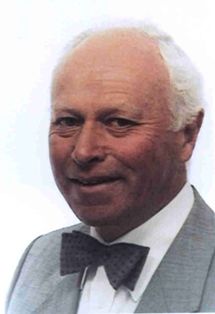
… The truth behind organ donation & organ transplants
By Dr David J Hill
(From “Minority Report: Two secular positions opposing donation”, a paper contributed to Dignity in Donation Day, UK, 27th April 2012. Published here with the kind permission of Dr David J Hill)
Dear Delegates,
I very much appreciate your invitation to shed some light on Dignity in Donation. I am sorry that I have a previous commitment that I am unable to change. I must also say that, although my anxieties about the way in which we continue to obtain organs from those diagnosed as dead for transplant purposes and my desire for the truth, are undiminished, I become weary of the struggle after some 40 years.

I was involved in some early transplants as a senior registrar, and later as a consultant anaesthetist and witnessed some dreadful procedures. These included a liver "donor" child, supposedly dead, who out-lived the "recipient" child; an adult "donor" who commenced breathing (before operation) in theatre and was still alive and back in the Intensive Care Unit when relatives came to collect the death certificate the following day; and a dozen or so occasions when the Theatre Register gave the time of death of the "donor" as some hours after the commencement of the harvesting operation - presumably timing "death" as when respiration and circulation had finally ceased.. It will, no doubt, be said that the Register was inaccurately filled and that such events could not happen today, but one's memories remain. As do the problems.
The Diagnosis of Death for Transplant Purposes has no international consensus and in the UK (as Pallis asserted) depends upon testing only a few cubic centimetres of tissue in the brainstem for loss of function. Any activity in the higher brain is not looked for and can be ignored.
Live organs can only come from living bodies. Death is commonly associated with an apnoeic, cold, ashen grey, pulseless, stiffening corpse, and not the warm, pink, breathing (albeit with a ventilator), heartbeating, responsive "donor", and yet there is no requirement for explanation of the different conditions that will apply when a box is ticked for organs to be taken "after my death". Increasing pressure continues to be applied to obtain this far-from-fully-informed "consent" or, when that fails, to abandon any pretence by using increasing compulsion.
It is well documented¹ that those diagnosed as brain stem dead (BSD) respond to the trauma of surgery as for any other major operation by hypertension, tachycardia and movement, and require paralysis and some form of anaesthesia for control. Neither the "donor" nor relatives need be apprised of this nor is anaesthesia offered or guaranteed on the donor card or register.
The Diagnosis of Death for Transplant Purposes has no international consensus and in the UK… depends upon testing only a few cubic centimetres of tissue in the brainstem for loss of functionIn the past I have been involved in [conferences] when, in spite of assurances to the contrary, donors and recipients are in the audience. As you [Dr Gardiner] imply in your welcome cautionary remarks, it is simply not possible to confront those who themselves, or through their families (e.g. “a donor Mum's story”), have been so involved, with the truths of these dubious procedures. Perhaps Deception in Donation would have been an alternative title.
The ethical dilemmas lie not so much in the use of human organs for transplantation as in the means by which major organs are obtained. Corneas, for example, can be usefully transplanted many hours after death has been confirmed by traditional means and all life-support has been withdrawn. Kidneys can survive and recover function after a shorter period. Other major organs – such as the heart, lung, liver, pancreas et al. – must be taken whilst life-support continues and characteristics of life (heartbeat, circulation, respiration (albeit ventilator dependent), digestion, excretion, even maintenance of pregnancy,² and response to stimulus continue.
Live organs can only come from living bodies… heart, lung, liver, pancreas et al. – must be taken whilst life-support continues and characteristics of life… and response to stimulus continue.Potential donors are unlikely to be familiar with neurological minutiae, but will easily recognise Fr Laurence’s description of Juliet’s appearance of death³
“no pulse
Shall keep his native progress, but surcease:
No warmth, no breath, shall testify thou livest;
The roses in thy lips and cheeks shall fade
To pearly ashes; thy eyes’ windows fall
Like death when he shuts up the day of life;
Each part depriv’d of supple government
Shall, stiff and stark and pale, appear like death.”
Romeo & Juliet Act 4, Scene 1
I am sorry if this is a disappointment to you and I sincerely hope that some, at least, of these things will be usefully aired.
With thanks and kind regards,
Yours sincerely,
Dr David J Hill
Retired Consultant Anaesthetist
References:-
(1) Wetzl RC et al. Hemodynamic responses in brain dead organ donor patients. Anesthesia & Analgesia 1985, 64; 125-128.
(2) Brain dead woman gives birth. Br Med J 2006, 335; 1468.
(3) Shakespeare W. Romeo & Juliet. Act 4, Scene 1.